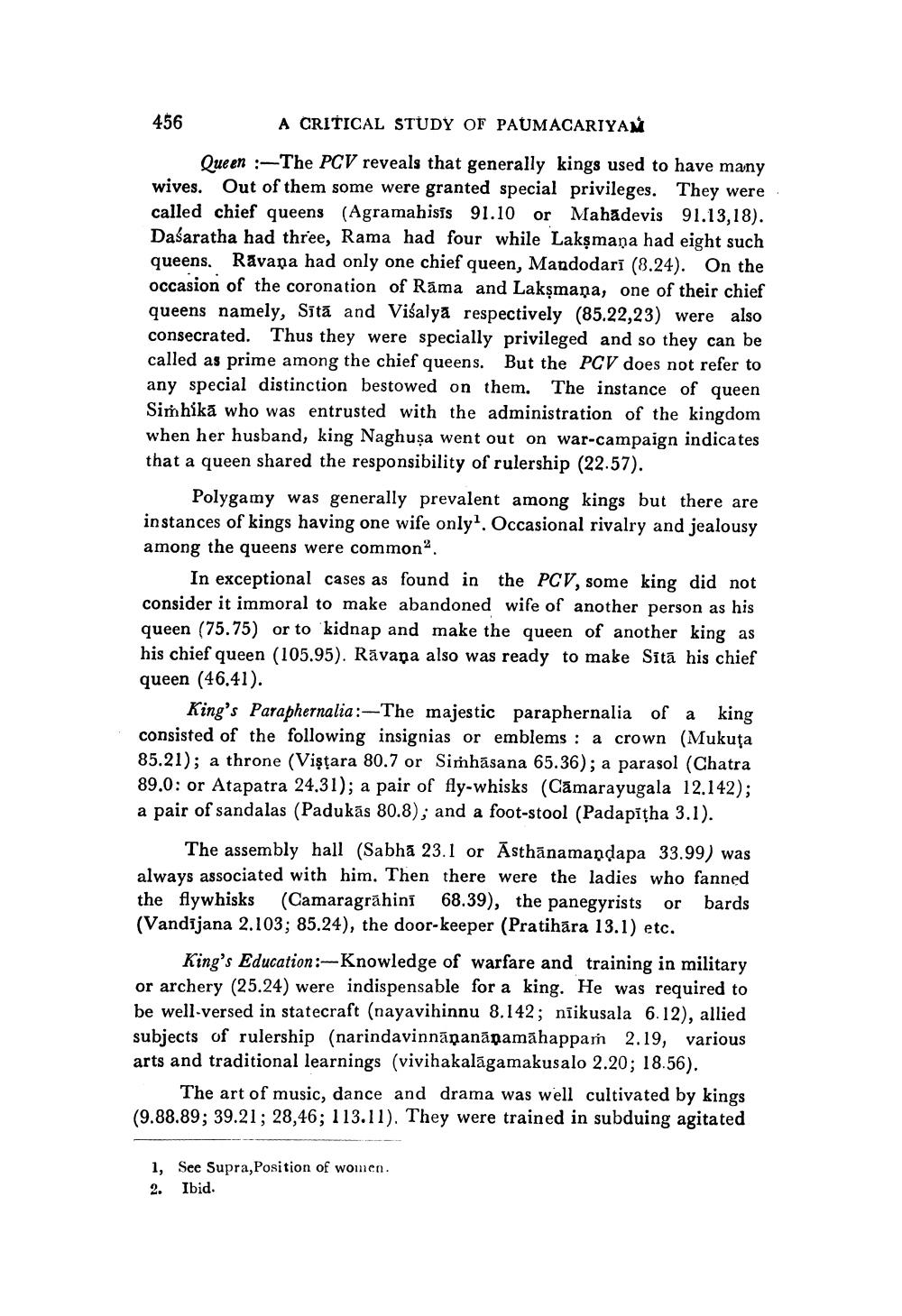________________
456
A CRITICAL STUDY OF PAUMACARIYAM
Queen :--The PCV reveals that generally kings used to have many wives. Out of them some were granted special privileges. They were called chief queens (Agramahisīs 91.10 or Mahadevis 91.13,18). Daśaratha had three, Rama had four while Lakşmaņa had eight such queens. Ravana had only one chief queen, Mandodari (8.24). On the occasion of the coronation of Rāma and Lakşmana, one of their chief queens namely, Sītā and Viếalyā respectively (85.22,23) were also consecrated. Thus they were specially privileged and so they can be called as prime among the chief queens. But the PCV does not refer to any special distinction bestowed on them. The instance of queen Simhika who was entrusted with the administration of the kingdom when her husband, king Naghuşa went out on war-campaign indicates that a queen shared the responsibility of rulership (22.57).
Polygamy was generally prevalent among kings but there are instances of kings having one wife only?. Occasional rivalry and jealousy among the queens were commona.
In exceptional cases as found in the PCV, some king did not consider it immoral to make abandoned wife of another person as his queen (75.75) or to kidnap and make the queen of another king as his chief queen (105.95). Rāvana also was ready to make Sitā his chief queen (46.41).
King's Paraphernalia: The majestic paraphernalia of a king consisted of the following insignias or emblems : a crown (Mukuta 85.21); a throne (Viştara 80.7 or Simhāsana 65.36); a parasol (Chatra 89.0: or Atapatra 24.31); a pair of fly-whisks (Cámarayugala 12.142); a pair of sandalas (Padukās 80.8); and a foot-stool (Padapitha 3.1).
The assembly hall (Sabha 23.1 or Asthānamandapa 33.99) was always associated with him. Then there were the ladies who fanned the flywhisks (Camaragrāhini 68.39), the panegyrists or bards (Vandījana 2.103; 85.24), the door-keeper (Pratihāra 13.1) etc.
King's Education: Knowledge of warfare and training in military or archery (25.24) were indispensable for a king. He was required to be well-versed in statecraft (nayavihinnu 8.142; niikusala 6.12), allied subjects of rulership (narindavinnānanānamáhappam 2.19, various arts and traditional learnings (vivihakalāgamakusalo 2.20; 18.56).
The art of music, dance and drama was well cultivated by kings (9.88.89; 39.21; 28,46; 113.11). They were trained in subduing agitated
1, See Supra, Position of women. 2. Ibid.




